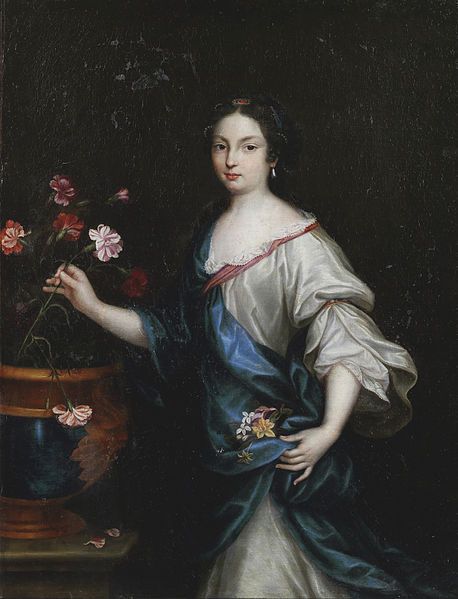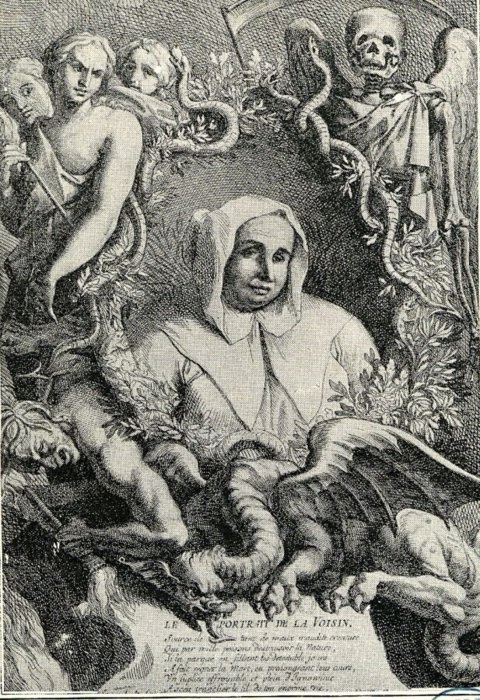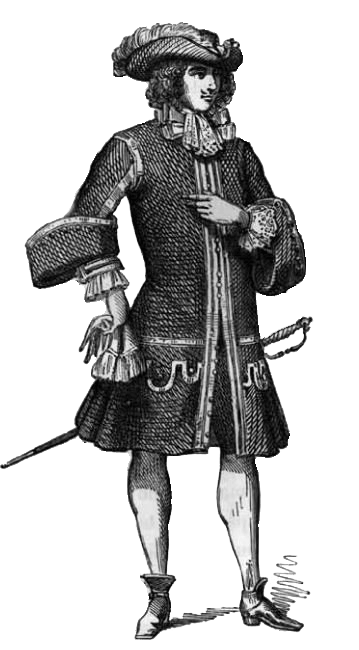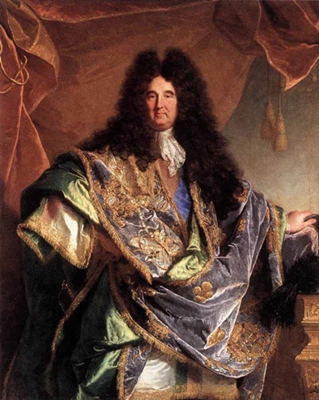Dangeau’s Diary, March 1685

4th. — There was a little carousel. It consisted of two quadrilles, the quadrille of the Christians was composed of myself, representing Charlemagne, Monseigneur as Zerbin, Monsieur de la Roche Guyon as Aquilan le Nuir, Monsieur de Liancourt as Griffon le Blanc, the Prince de Tingri as Renaud and Monsieur d’Antin as Roland. This quadrille was dressed in black and gold. The quadrille of the Saracens was composed of the Duc de Grammont as Agramant, the Prince de Roche-sur-Yon as Mardricard, Monsieur de Vendome as Gradasse and Monsieur de Bryonne as Rodoinont, Monsieur de Turenne represented Roger and Monsieur d’Alincourt Sacrepant. This quadrille was dressed in green and gold.
The Duc de Grammont and I were chiefs of the quadrille and judges of the field.The King and the whole court were seated upon the scaffoldings and in the square and the march was in the following order: Dumont, Monseigneur’s squire, marched first, followed by a kettle-drum and two trumpeters; then marched the black quadrille in this order: I, Monsieur de la Roche-Guyon, Monsieur de Liancourt, Monsieur de Tingri, Monsieur d’Antin, Monseigneur. Then came the green quadrille, thus marshalled: a kettle drummer, two trumpets, the Duc of Grammont, the Comte de Bryonne, the Marquis d’Alincourt, the Prince de la Roche-sur-Yon, the Duc de Vendome, and the Prince de Turenne. After they had all marched round the square, and passed before the King, they began running at the heads, there were three courses for the ladies and afterwards three others for the prize. The duke de Grammont and myself, as judges, were in the middle of the square. Dumont marked down the courses upon tablets. The kettle-drums and trumpets were outside the lists, a trumpet sounded at the commencement of every course, and when any one carried away the four heads, the kettle drums and trumpets sounded a nourish. The African party had the advantage; it remained therefore for the five green knights to dispute the prize among themselves, for which purpose each of them ran three courses, in which the Prince de Roche-sur-Yon and the Prince de Turenne made each nine heads and disputed the prize, and one course in which they each made four heads and upon again running to decide it, the Prince de Turenne was successful. The prize was a golden sword with baldric buckles of the same material. He divided the prize with the Prince de la Roche-sur-Yon, because they had agreed to be partners, but this agreement was rather disapproved of. The King was much delighted at the little carousal, and ordered a greater one to take place after Easter. There will be at least sixty knights.
8th. — The carousal preparing for the month of May has been arranged; there will be only two quadrilles of forty knights each. The subject is taken from the wars of Grenada. Monseigneur will be the chief of the Abencerrages, and the Prince de la Roche-sur-Yon that of the Zégris. The Duc de Grammont and I are to be marecheaux-de-camp of the Abencerrages, the Duc d’Uzes and Tilladut will be marechaux-de-camp of the Zegris and the Duc de Saint Aignan will superintend the whole.
10th. — I hear that the King’s statue, made at Rome by Bernini, has arrived at Paris on board a small Dutch vessel. The people are very anxious to see it.
11th. — The Algerine envoys came to pay their respects to the King and said to him ” that their Dey took the liberty of making him a small present which he hoped his Majesty would not refuse to accept, since Solomon had deigned to receive the thigh of the grasshopper presented to him by the ant.” After dinner, upon the sermon being concluded, they presented the King with twelve beautiful barbs, expressly chosen by the Dey.
22d. — The Princes de Conti went to Paris, saying that they should set off on Monday on their journey to Poland, but this very evening they left Paris* without having taken leave of the King or of anyone, thinking that if they delayed another day, Monsieur le Prince and Monsieur le Duc would use their efforts with the King to set aside the journey. M. de Turenne accompanied them.
27th. — As the King was rising from breakfast, the Princesse de Conti came into his cabinet to bring him two letters from the Prince de Conti and the Prince de la Roche-sur-Yon. The King said to her “Madame, I can refuse nothing from your hands, but you shall see the use I will make of them.” and at the same time took the letters and threw them into the fire, although Monsieur did all he could to induce him to peruse them, even entreating the King to allow him to read them, that he might give him some account of their contents.
29th. — The circumstance of the King of England (James II) having received marshal Lorges seated, and with his hat on, has transpired. The late King (Charles II), his brother, did not receive the envoys of France, nor even those of other Kings, in this manner. This treatment, although perfectly regular, has occasioned much surprise from its novelty. The late King was so accustomed to wave all ceremony, that when Monsieur de Vaudémont went to England and wished to stipulate, that as a grandee of Spain he should wear his hat during his audience, the King of England replied to those who spoke to him about it, “He shall wear his hat if he likes, provided I am not obliged to do the same, for I should be very awkward in putting on mine, so little am I accustomed to it.” The King of England has also given orders that the ambassadors and foreign ministers shall in future only speak to him at the audience.This is another considerable change, for the King, his brother, gave audiences at all hours and in all places, and most frequently at the residence of his mistresses, without even being prepared for it.
30th. — The Prince of Orange, having written to the King of England in favour of the duke of Monmouth, requesting that he might be permitted to return to England, his Britannic Majesty answered, that he had a pardon under the great seal and that therefore he could not be prosecuted in England, but that if he set foot therein, he would have him seized and carried into Scotland, there to be tried and hanged as a traitor.
*They went to serve in the imperial army in Hungary against the Turks.



